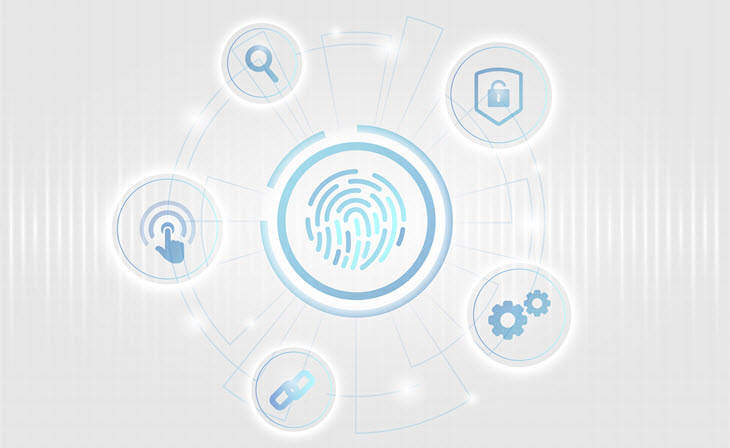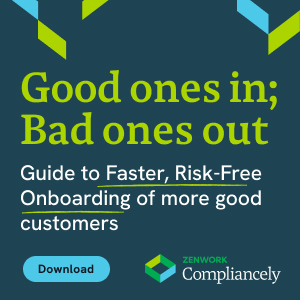
Enhanced Due Diligence (EDD) & Real-Time Identity Verification For High-Risk Customers
There are a lot of areas in a business where you can afford risks and uncertainties. But KYC is not one of them. KYC or Know Your Client/Customer process is a customer identification program that requires the incoming customers to submit certain proof of identification to help the bank or financial institution validate the customer’s identification details and determine risks and credibility.
What would happen if you do not assess the risks involving a customer? It could lead to civil violation penalties, operational prohibition, and even imprisonment for both parties involved in the transaction.
Banks that do not vet their profiles thoroughly and continue to tolerate suspicious account activity will be flagged for creating a safe harbour for potential money launderers, organized terror funding, and related prohibited regimes.
Determine if your business needs EDD
Most banking and financial institutions deal with a large customer base. When onboarding a new customer, there needs to be certain common ground for both parties to contract with. A comprehensive KYC process allows you to accomplish that foundation and move along to the next onboarding process steps.
While this is the case, for the most part, there’s more to it.
Certain individuals hesitate to provide the required identification and proof. These profiles could have a rather suspicious financial background and try to pull strings within the banking system to have someone accommodate their money ‘transfer’ requirements.
Unless you want to engage in what could be a potential money laundering scam, you may not want to play along with this dangerous game.
Banking and financial institutions are built on transparency. When either of the parties is willingly compromising the regulations, they are inviting trouble.
But most money launderers are not so transparent about their requirements. They will seem completely harmless and yet your intuition will go off.
This is when you will need to dig deeper and look for any public records of non-compliance and violations that could potentially categorize your customer as “high-risk”.
In some scenarios, you may not be able to decipher if your customer brings risk until after you have onboarded the profile. Suspicious account activity. cross-border transactions, extreme activity (no funds or too many fund transfers happen very frequently), and sources of their funds are unknown – all of these could be prima facie evidence for a high-risk profile.
This is where you will need EDD or Enhanced Due Diligence to further assess risk.
What is enhanced due diligence (EDD)?
Enhanced due diligence is a comprehensive process of identifying the credibility of a customer profile. This involves reviewing any public records of the customer, financial background, legal background, adverse media coverage, transactional data, sources of funding, verifying ultimate beneficial ownerships, geographical account activity, and more.
Banks and financial institutions that see a sudden shift in account activity have to alert their internal assessment teams to check and verify the activity and the reason behind it.
How does EDD work?
The primary use of EDD is to assess the risks a potential high-risk profile could bring to your business and determine how sustainable their profile is in the long term.
Secondary use of EDD is to monitor the customer’s suspicious activity and draft a Suspicious Activity Report (SAR) to the authorities and law enforcement.
The customer should not be informed about the report even after the submission. AML laws protect banks and financial institutions in such instances for voluntarily reporting a potential financial crime.
EDD With Compliancely’s Real-Time Identity Verification API
Enhanced Due Diligence benefits with a real-time identity verification infrastructure like Compliancely. Thousands of businesses in finance, lending, banking, insurance, and other industries use Compliancely every day to verify their customer profiles and assess risk.
Our real-time identity verification framework helps you check the true identities of customers around the world. Money laundering, suspicious account activity, transaction tracing, and more can be enabled through real-time identity verification.
Enhanced due diligence requires you to search a variety of independent yet authorized databases and watch lists, which require special legal status and permissions.
Compliancely is an authorized agent of the IRS and the dynamic infrastructure could be used for profile vetting. You can check a profile against multiple authorized watch lists and databases as follows.
- TIN & Name Match
- OFAC Watch List
- European Sanctions List
- Death Master File
- Specially Designated Nationals
- Politically Exposed People
- IRS Tax-Exempt Org. Search
- Foreign Account Tax Compliance Act (FATCA) List
- Address Validation
- Denied person List
- SOS Business Entity Search
- Consolidated Sanctions
- Arms Export Control Act
- Foreign Sanctions Evaders List
- Excluded Parties List System
- List Of Excluded Individuals/Entities
- Designated Foreign Terrorist Organizations
Our verification reports will help you get useful insights into assessing the potential risks of a profile. Additionally, you can check as many as 100,000+ checks in a day, streamlining your internal Customer Identification Programs, and reducing the workload on your human-centred operations.
